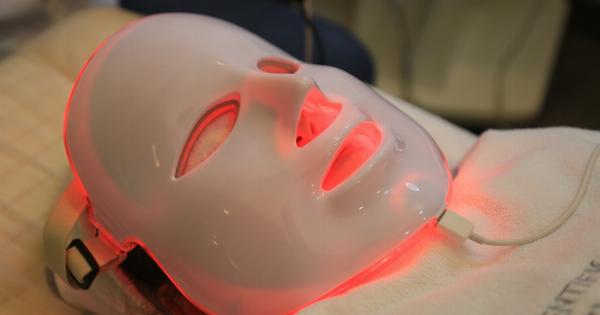Over the years, the popularity of botox and cosmetic surgery has surged in Britain, with many individuals opting for these procedures to enhance their appearance or address specific aesthetic concerns.
However, recent controversies and safety concerns have prompted the need for tighter regulations in the industry. In response to this, authorities in Britain have proposed new regulations to ensure the safety and well-being of patients undergoing botox and cosmetic surgical procedures.
These proposed regulations aim to address issues such as qualifications and training of practitioners, consent procedures, and post-operative care, among others. Let us delve deeper into the key aspects of these proposed regulations and their potential impact on the industry.
1. Enhanced Qualifications and Training for Practitioners
The proposed regulations suggest stricter qualifications and training requirements for practitioners performing botox and cosmetic surgical procedures.
This will ensure that only adequately trained and certified professionals can administer such treatments, eliminating the risk of inexperienced or underqualified individuals causing harm to patients. It is expected that these regulations will establish a minimum standard of expertise and competency in the field.
2. Informed Consent Procedures
Consent procedures play a crucial role in any medical procedure, including botox and cosmetic surgeries.
The proposed regulations put emphasis on obtaining informed consent from patients, ensuring they have a comprehensive understanding of the risks, benefits, and possible outcomes of the procedures. This will empower patients to make informed decisions about their own bodies and minimize the chances of misunderstandings or unrealistic expectations.
3. Transparency in Advertising
One of the concerns surrounding the botox and cosmetic surgery industry is the deceptive advertising practices employed by many clinics and practitioners.
The proposed regulations aim to enforce transparency in advertising by ensuring that all promotional materials accurately reflect the possible outcomes and limitations of the procedures. This will help potential patients make informed choices based on accurate information rather than misleading claims.
4. Requirement of Post-Operative Care
Post-operative care is a critical aspect of any surgical procedure. The proposed regulations place an emphasis on the requirement of appropriate post-operative care for patients undergoing cosmetic surgeries.
This may include regular follow-up appointments, provision of necessary medications, and accessible support in case of any complications. The aim is to ensure that patients receive the necessary care and attention throughout their recovery journey.
5. Stricter Controls on Minors
The new regulations also address the issue of performing cosmetic procedures on minors. It proposes implementing stricter controls and regulations when considering providing such procedures to individuals under the age of 18.
This is to ensure that minors are not subjected to unnecessary risks and are protected from making impulsive decisions that could potentially have long-term consequences.
6. Improved Record-Keeping and Traceability
The proposed regulations suggest that clinics and practitioners maintain comprehensive records of all patient consultations, procedures, and outcomes.
This will enable better traceability and monitoring of individual cases, allowing authorities to identify any patterns of malpractice or negligence. Improved record-keeping will also aid in conducting research and accessing valuable data regarding the safety and efficacy of various procedures.
7. Tightened Regulations on Dermal Fillers
Alongside botox, dermal fillers have gained immense popularity as a non-surgical cosmetic treatment option. However, the sector suffers from a lack of regulation, leading to safety concerns.
The proposed regulations aim to tighten controls over the use and administration of dermal fillers, ensuring that only qualified professionals perform these procedures. Stricter regulations will minimize the risk of adverse reactions and improve patient safety.
8. Nationwide Register of Practitioners
Another key aspect of the proposed regulations is the creation of a nationwide register of practitioners licensed to administer botox and perform cosmetic surgeries.
This centralized database will enable individuals to verify the qualifications and credentials of practitioners before undergoing any procedures. It will help patients make informed choices and ensure that only licensed professionals are offering these services.
9. Collaboration with Professional Bodies
The proposed regulations emphasize the importance of collaboration between regulatory bodies and professional associations in the cosmetic industry.
By working together, these entities can establish industry guidelines, provide ongoing training and support to practitioners, and promote best practices. This collaborative effort will further improve patient safety and enhance the overall quality of cosmetic procedures in Britain.
10. Penalties for Non-Compliance
The new regulations propose stringent penalties for practitioners and clinics found to be non-compliant. These penalties may range from fines and temporary suspensions to permanent bans from practicing.
By enforcing such penalties, the authorities seek to deter unscrupulous practitioners who prioritize profit over patient safety, ensuring that the industry maintains high standards and ethical practices.
In Conclusion
The proposed regulations for the botox and cosmetic surgery industry in Britain aim to alleviate safety concerns and protect the well-being of patients.
By establishing stricter qualifications for practitioners, improving consent procedures, promoting transparency in advertising, and ensuring post-operative care, these regulations seek to enhance patient safety and minimize the risks associated with cosmetic procedures. Tightening controls on dermal fillers, maintaining a nationwide register of practitioners, and encouraging collaboration between regulatory bodies and professional associations further contribute to raising industry standards.
With these proposed regulations, the future of the botox and cosmetic surgery industry in Britain looks promising, providing patients with increased confidence and ensuring their safety throughout their aesthetic journeys.





























